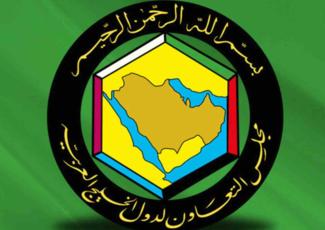Date: Friday, 25 August 2017
Abrupt Middle East Geopolitical Turnabout: The Qatar, Saudi Arabia and GCC Crisis
Global Research, August 25, 2017

Featured image: Logo of the Gulf Cooperation Council (GCC)
It is tempting, and not entirely inaccurate, to dismiss the escalating crisis between Qatar and a number of its neighbors as a petulant princely playground spat. Extending this tempting logic, one could conclude that decisive victory by each of the protagonists would be the optimal outcome. Yet the dispute also reflects deeper dynamics in Arab and regional politics that are shaping the increasingly turbulent and violent realities of the Middle East.
Saudi Arabia’s Gulf Cooperation Council
The Gulf Cooperation Council (GCC), which is the locus of the present crisis, was established in 1981 by Saudi Arabia, Bahrain, Kuwait, Oman, Qatar, and the United Arab Emirates (UAE). Its formation consummated the expiration of the concept of collective Arab action that the League of Arab States aspired to but was designed never to achieve, and presaged the pre-occupation of the region’s regimes with confronting Iran rather than Israel. Although formally established to promote greater economic, political, and security coordination among its member states, the impetus for the GCC’s formation was the collective threat presented to its members by both the 1979 Islamic Revolution in Iran on the eastern littoral of the Persian Gulf and the Iran-Iraq War, launched the following year by Saddam Hussein, whose efforts the Gulf Arab states supported and bankrolled in intimate coordination with the United States.
In the early 1980s, the only GCC member of consequence was Saudi Arabia–whose size, population, resources, and wealth dwarfed that of the others combined–and, to a much lesser extent, Kuwait. Although Oman, unlike its peers, had not severed relations with Egypt after the latter signed a separate peace with Israel in 1979, the prospect that GCC members would even contemplate pursuing a regional or foreign policy independent of Saudi Arabia in those days would have been considered beyond the realm of fantasy. It is for example inconceivable, after blowback struck and Iraq occupied Kuwait in 1990, that Qatar or Bahrain would have opted for a negotiated settlement of the crisis rejected by Riyadh (and its patron in Washington). Nor could they have permitted the United States to deploy troops and establish military bases on their territory had the Saudis not led by example and consented to such moves.
During the 1990s, this equation began to gradually change. The Iran-Iraq, Kuwait, and Cold Wars were over, the price of oil slumped, and the United States maintained a growing and seemingly permanent military or naval presence within every GCC state. Riyadh, in addition to its relatively diminished strategic importance and ailing, sclerotic leadership, was also dealing with the substantial debts it had incurred–again in intimate coordination with the United States–to assemble and fund the coalition of states that evicted Saddam Hussein from Kuwait. By contrast, Dubai, with its diversified economy fueled in part by extensive sanctions-busting trade with Iran, and never lacking for gaudy ambition, was well on its way to becoming a global city and replacing Kuwait as regional trendsetter. In 1995, Qatar, which even many Arabs would in those days have struggled to find on a map, made the news when its amir was overthrown by his son, Shaykh Hamad bin Khalifa Al Thani, in a bloodless palace coup while yet again vacationing in Switzerland.....................
........................Continue to read it below
Berhane